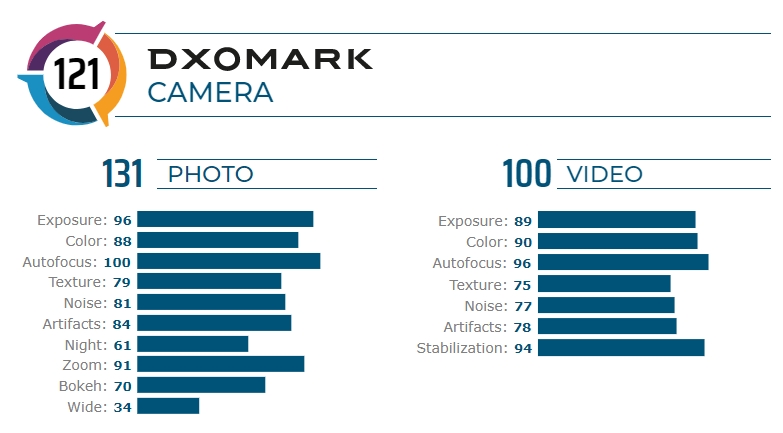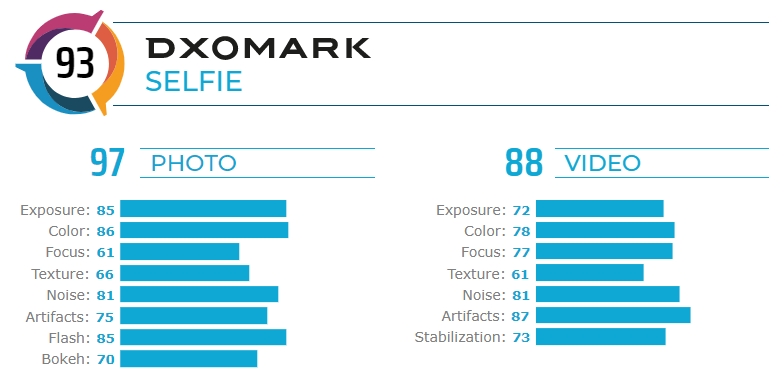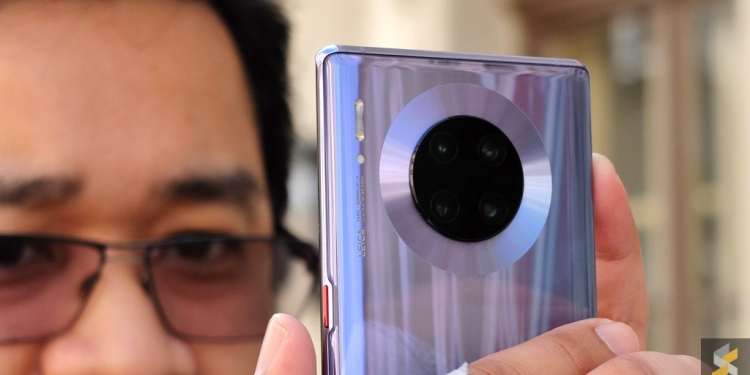The new Huawei Mate 30 Pro sets a new benchmark on DxOMark Mobile with a new high-score of 121 points. That’s five points higher than the Huawei P30 Pro and it’s four points more than the previous champion, the Galaxy Note 10+ 5G under the new testing protocols.
Rear Camera

For the rear camera, the Mate 30 Pro’s quad-camera achieves 131 points for photo which is the highest in the category. Meanwhile, for videos, the device gets a score of 100, which is a point below the Galaxy Note 10+ 5G.
The Mate 30 Pro is the first smartphone to feature two 40MP sensors. It has a 40MP f/1.6 main camera (1/1.7″ sensor) with OIS and a 40MP f/1.8 ultra-wide camera (1/1.54″ sensor). There’s also an 8MP f/2.4 (1/4″ sensor) with 3X optical zoom as well as a 3D ToF camera.
According to DxOMark, the Mate 30 Pro delivers excellent results in almost all still image categories and it shines when it comes to texture and noise. Images are well exposed even in very low light levels and it also boasts a wide dynamic range to ensure good shadow and highlight detail in high-contrast scenes.
Although it doesn’t come with a periscope telephoto camera like the P30 Pro, the Mate 30 Pro appears to capture greater detail in short and medium-range zoom. They also noted that the ultra-wide-angle camera has a focal length of 18mm and this means you won’t get as much scene as compared to the P30 Pro’s 16mm and Galaxy S10 5G’s 12mm ultra-wide-angle cameras.
The Mate 30 Pro now shoots video at 4K resolution by default and it offers accurate exposure in most conditions. Auto-focus is found to be fast and accurate, and it also offers effective stabilisation.
Front camera

For selfies, the Mate 30 Pro gets an overall score of 93. It is the best selfie score for a Huawei device but it still several points behind the Galaxy S10, Galaxy Note 10+ 5G and the ZenFone 6. To break it down, it gets 97 points for photo and 88 points for video.
According to DxOMark, the front 32MP camera offers good exposure and colour but the fixed-focus lens makes it less ideal for close-range and selfie-stick shots. For videos, the noise level is well controlled in all conditions but there are residual motion and face deformation visible in walking videos.
In their review, they have revealed that their Huawei Mate 30 Pro review unit is running on a different firmware that’s not yet available for consumers. They added that this particular version will be pushed to consumers as an update in the near future.
You can read the full DxoMark Mobile review of the Mate 30 Pro here.








